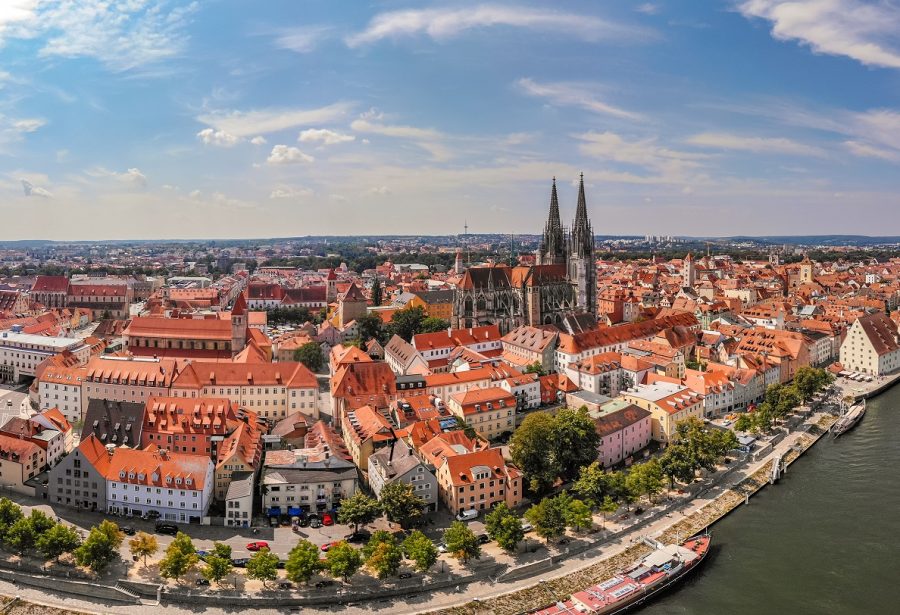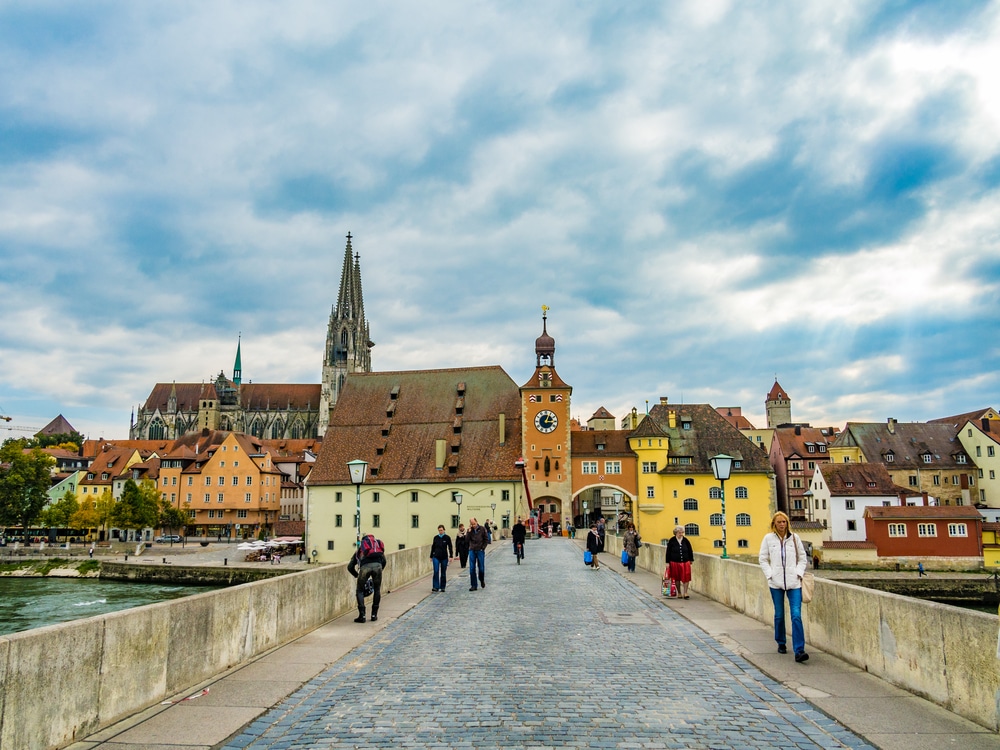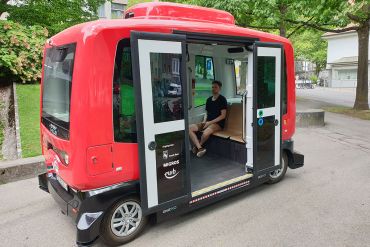
Regensburg: Great progress, but COVID-19 delays e-scooter deployment
We spoke with Christian Heil, civil engineer in the traffic planning department of Regensburg, who is responsible for the implementation of the noise reduction planning in the Bavarian city. Furthermore, he is taking care of the development of the traffic model of Regensburg.
Christian, please let us know, what is your role in the MOMENTUM project?
I am providing the traffic model and other relevant mobility data of Regensburg, design the test case with our technical partner TU Munich and I am trying to implement the study results from the MOMENTUM project in our future mobility plans for the city. I am supported by our EU coordinator, Klaus Grepmeier, who is mainly responsible for contractual matters and supra-regional networking.
Thank you Christian, we would like to know which emerging mobility solution (and the respective integration) does your city analyse?
We mainly analyse car sharing, as well as the implementation of bike sharing and the autonomous people mover. The car-sharing service is currently working as a pilot project. Luckily, the fleet size increased from seven to 20 electric vehicles in 2021. After delays due to the Covid-19 pandemic, the autonomous people mover is operating since May 2021 in a two-year pilot project in the business park. Due to financial constraints, the introduction of a bike-sharing system, which has been strived for years and is an important goal in Regensburg, is yet to be realized. We hope that the operation will begin soon based on the results from MOMENTUM.
That’s a great overview, but please let us know what happened in the last couple of months?
In February, we started to integrate the tools developed in previous tasks, with a focus on test cases and thus the most exciting part for cities. We had a couple of meetings in which the development status of the tools was shown.
In order to support the improvement of the tool, we had to collect operator data for input values, test the tool and give feedback on the functionality of the tool.
Furthermore, we got some preliminary results regarding the car-sharing system in Regensburg. TUM has developed a data-driven demand model for the sharing system. Several results are very interesting for us. For example, for every new station introduced (with 1 or 2 vehicles), on average, the total demand for car-sharing increases by around 2. Additionally, the car-sharing system in Regensburg complements active mode and public transport users, thus the implementation of the scheme can reduce car-ownership levels in the city in the long run (especially, motivating individuals to give up their non-primary cars. These are really positive news, which empirically show that a car sharing system would be quite beneficial for our city.
Since we want to implement such a system, we had a first meeting in July with the operator SMO, in which representatives of the mobility sector were involved. This meeting served as a basis to prepare the policy assessment, in which the results of the tools for the test case are to be evaluated and a strategy for integrating the results in decision-making processes is to be developed.
Is the COVID-19 pandemic still influencing your work?
Besides the shift from physical to virtual meetings, I cannot find any further restrictions in my daily work, especially related to the project. It is a pity that some forms of mobility such as the automated people mover and bike sharing have been delayed due to the Covid-19 pandemic and that operating data cannot be made available for analysis.
Without a Covid-19 pandemic, scooter sharing would probably have appeared earlier in Regensburg and it would probably have been possible to evaluate operating data here too. Now, we are dependent on synthetically generated data which, thanks to our traffic model and the excellent work of the scientists in the consortium, still provide us with meaningful results for Regensburg.
After you provided us with an update, let’s look into the future: what will happen in summer and autumn 2021?
We will test more advanced levels of our planning tool. In autumn, the calculations and the evaluation of the scenarios, that we have defined, will start. In parallel, we will work out a strategy on how these results can be incorporated into future decision-making processes.
Do you have plans for physical or online events that might be of interest for our readers?
Unfortunately, we cannot provide a direct invitation, but we will present our case during the third traffic conference in Regensburg on 30 November. The event will be virtual and in German. Additionally, we have a local peer-to-peer workshop where we will invite interested stakeholders in Bavaria and Germany to learn more about MOMENTUM and specifically our work in Regensburg. Hopefully, we will be able to organise a physical meeting.




